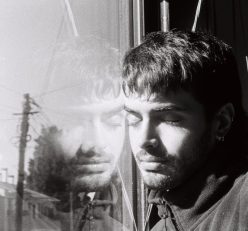Music and Conflict is a book edited by ethnomusicologists John Morgan O’Connell and Salwa El-Shawan Castelo Branco, which describes and analyses many situations where the production and propagation of music were used under conflicting scenarios through various essays written by several scholars.
O’Connell highlights primarily the importance of defining what Conflict is, given that it might have several forms and it can be either positive or negative outcomes. Hence, Conflict can be “viewed negatively, as the logical outcome of economic inequality and social disparity leading inevitably to violent rupture where the status of a dominant elite is called into question (Morgan O’Connell & El-Shawan Castelo-Branco, 2010). It is also evaluated as a nonrational behaviour, following the minimal group theory developed by Henry Tajfel; still, it is also seen as a “rational reaction to power where the state provides a locus for simulating models of group interaction”.
Conflict can be understood through music when its musical treats are evaluated and put under the perspective of those who create it. For instance, these can be noticed in the music’s structure, systems, materials, practice, contexts, and values. These factors are symbolic, and they are also an analogy.
Additionally, Music and Conflict questions the work of an ethnomusicologist when it is set to register any situation that portrays the influence of music in Conflict and vice-versa. “As Salwa El-Shawan Castelo-Branco argues in the epilogue, although ethnomusicologists may operate as mediators in conflictual situations, they may also have to become politically engaged if conflict resolution is to be effective.”(Morgan O’Connell & El-Shawan Castelo-Branco, 2010).
Concerning my topic, this book appeared to have discussions capable of bearing fruit on questions related to the methodologies of an ethnomusicologist. How should one position himself in a conflicting situation? What are the limits and complications an ethnomusicologist faces? How could this be useful for analysing Michel Giacometti’s work? How do the case studies reflected in this book relate to the Portuguese Conflict? There is indeed an immediate connection between the popular music that appeared before and after the Carnation Revolution, resembling the names of Zeca Afonso, José Mario Branco, Adriano Correia de Oliveira, among others, who sang and produced protest songs either to overthrow the dictatorship and later to be a cornerstone to socialist political ideologies. However, what about traditional music? Where does it belong? What is the status of these forms of music? These are questions that this book struggle to answer.
Morgan O’Connell, J. and El-Shawan Castelo-Branco, S., 2010. Music and Conflict. 1st ed. University of Illinois Press, pp.1-12.

